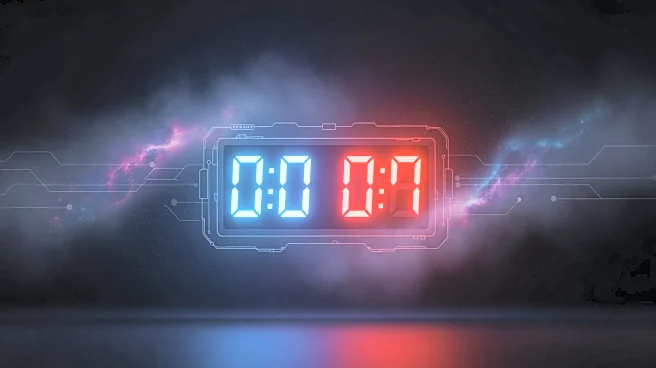What's Happening?
The manufacturing industry is shifting its focus from traditional improvement tools to a zero-loss mindset, aiming to eliminate various forms of operational losses. This approach prioritizes the identification and reduction of losses such as downtime, yield, energy, health and safety incidents, material waste, and underutilized talent. Organizations are encouraged to treat loss as a strategic enemy rather than an operational nuisance, making it visible and measurable. By quantifying losses in financial terms and categorizing them, companies can assign ownership for eliminating them, fostering a culture of continuous improvement. This shift is seen as crucial in a world of shrinking margins and volatile markets, where operational excellence is defined by the systematic reduction of loss rather than the deployment of methodologies.
Why It's Important?
Adopting a zero-loss mindset in manufacturing is significant as it aligns all functions within an organization towards a common goal of reducing losses. This approach creates a shared language between different departments, such as finance, operations, and HR, each understanding loss in terms of their specific metrics. By unifying purpose, companies can accelerate progress and improve performance across the board. The cultural shift encourages employees to focus on loss elimination rather than project completion, promoting accountability and empowerment. As manufacturers face challenges like complex supply chains, tighter margins, and sustainability pressures, those who successfully implement zero-loss thinking will likely gain a competitive edge by maximizing value and minimizing waste.
What's Next?
Organizations are advised to map their losses before launching new initiatives, making loss visible at every level, and connecting loss reduction to leadership standard work. Celebrating loss elimination rather than project completion is recommended to change behavior effectively. By making loss part of the business language, companies can integrate financial, operational, and cultural improvement into their daily operations. This strategic focus on loss reduction is expected to drive both accountability and empowerment, helping manufacturers thrive in the next decade by building a culture where no loss is acceptable.
Beyond the Headlines
The zero-loss mindset not only impacts operational efficiency but also has ethical and cultural implications. It encourages a shift in how employees perceive their roles, fostering a sense of ownership and responsibility for continuous improvement. This approach challenges historical target-setting habits and promotes a vision of perfection, where non-value-added activities are intolerable. By engaging employees at all levels, organizations can cultivate a culture of excellence that permeates every layer, ultimately transforming how businesses operate and compete in the global market.









